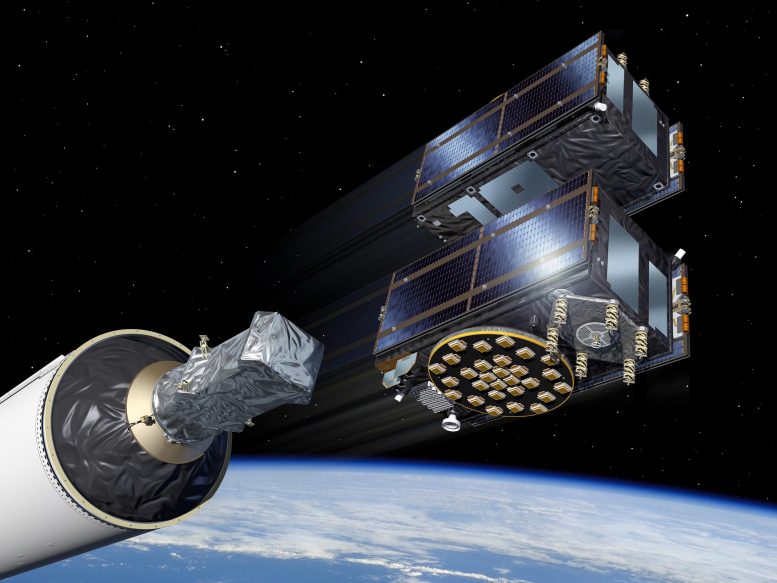
The European Galileo navigation system has two more satellites in orbit after launching in the early morning of Sunday, April 28. With 30 satellites now in orbit, Galileo is expanding its constellation, increasing reliability, power and, ultimately, accuracy, benefiting billions of users around the world. Credit: ESA – P. Karel
Galileo, the world’s most accurate satellite navigation system, has expanded its constellation with the launch of two new satellites by SpaceXwhich enhances its reliability and accuracy.
The European Galileo navigation system has two more satellites in orbit after launching aboard a SpaceX Falcon 9 spacecraft in the early morning of Sunday, April 28, at 01:34 GMT/02:34 CET. With 30 satellites now in orbit, Galileo is expanding its constellation, increasing reliability, power and, ultimately, accuracy, benefiting billions of users around the world.
Galileo is already the world’s most accurate satellite navigation system and the largest European satellite constellation, and has been operating since 2016, when initial services were announced. Galileo makes a difference in railways, maritime, agriculture, financial timing services and rescue operations.
Many strategic sectors depend on it: 10% of the EU’s annual GDP already depends on satellite navigation, and this number is expected to rise. From finding our way to supporting search and rescue activities and providing ultra-precise timestamps for all kinds of institutional and commercial applications, Galileo is an integral part of our daily lives.
Since Galileo’s creation, 38 Galileo satellites have been developed and tested by ESA and European industry for the EU’s Galileo programme. Of these satellites, four validation satellites have been placed in orbit and 26 fully operational capability satellites have been placed in orbit with 12 launches.
This launch takes place just a few days after the new Public Regulated Service (PRS) signals go live. This encrypted navigation service is specifically designed for authorized government users and sensitive applications, contributing to Europe’s increased independence and flexibility in the vital field of satellite navigation.
The remaining eight first-generation Galileo satellites will soon be ready for launch, after which the second generation (G2) satellites will begin joining the constellation, expected in 2026 with the Ariane 6 launcher. The European Space Agency, as the design body and head of system development, will serve Galileo, together with European industry to develop G2 satellites that will revolutionize the fleet with enhanced capabilities. The G2 satellites will use electric propulsion and will host a more powerful navigation antenna, more and better atomic clocks, and fully digital payloads.
About Galileo
Galileo is currently the world’s most accurate satellite navigation system, serving more than four billion smartphone users around the world since entering open service in 2016. All smartphones sold in the European Single Market are now supported by Galileo. In addition, Galileo makes a difference in the fields of railways, maritime, agriculture, financial timing services and rescue operations.
A pilot program funded by the European Union, Galileo is managed by the European Commission. Since its establishment, ESA has been leading the design, development and qualification of space and ground systems, as well as launch operations. ESA is also charged with R&D activities for the future of Galileo within the EU Horizon Europe programme. The European Union Space Program Agency (EUSPA) acts as the service provider, overseeing market uptake and closing the loop with users.

“Beer aficionado. Gamer. Alcohol fanatic. Evil food trailblazer. Avid bacon maven.”
